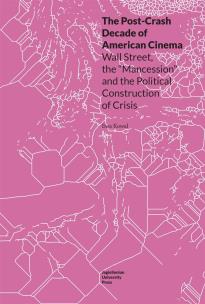- Regulamin
- Koszty dostawy
- Kontakt
- Dziś w ofercie 236 936 produktów
KSIĄŻKI
- Albumy
- Beletrystyka
- Biografie
- Dla dzieci i młodzieży
- Edukacja
- Ekonomia i biznes
- Ezoteryka
- Historia
- Informatyka
- Kalendarze
- Komiksy
- Kryminał i sensacja
- Kultura i sztuka
- Literatura faktu
- Literatura kobieca
- Literatura piękna
- Medycyna
- Nauka języków obcych
- Nauki humanistyczne
- Nauki przyrodnicze
- Nauki ścisłe
- Podręczniki
- Poradniki
- Prawo i administracja
- Przewodniki i podróże
- Psychologia
- Religia
- Sport
- Technika
- Zdrowie i uroda
ZABAWKI
- Artykuły dla niemowląt
- Bączki
- Bujaki i skoczki
- Ciągnij / pchaj
- Dla niemowlaka
- Grzechotki i gryzaki
- Karuzele i pozytywki
- Maty i centra zabaw
- Projektory i lampki
- Sortery i piramidki
- Zabawki
- Edukacyjne i kreatywne
- Figurki
- Klocki
- Lalki
- Pojazdy
- Pluszaki i maskotki
- Sport i rekreacja
- Zabawa w dom
- Zabawki drewniane
- Puzzle
- Do 200 elementów
- 201-500 elementów
- 501-1000 elementów
- Ponad 1000 elementów
- Puzzle 3D
ART. PAP
- Artykuły biurowe
- Artykuły piśmiennicze
- Bloczki i kartki samoprzylepne
- Dziurkacze
- Kalkulatory
- Nożyczki i nożyki
- Skoroszyty
- Teczki
- Wizytowniki
- Zszywacze
- Artykuły szkolne
- Akcesoria szkolne
- Modelowanie
- Notatniki i zeszyty
- Piórniki
- Plecaki i torby
- Pojemniki na śniadanie
- Pomoce naukowe
- Przybory matematyczne
- Przybory rysunkowe
- Upominki i gadżety
- Akcesoria do książek
- Artykuły balowe
- Breloki i zawieszki
- Drobiazgi, różności
- Kubki
- Oferta Świąteczna
- Papeteria, kartki i naklejki
- Skarpetki Many Mornings
- Upominki
GRY
MULTIMEDIA
- Audiobooki
- Beletrystyka
- Biografie i wspomnienia
- Dla dzieci i młodzieży
- Fantastyka
- Filozofia i religia
- Historia
- Literatura faktu i reportaż
- Poradniki
- Sensacja i kryminał
- Filmy DVD/BD
- Animowane
- Biograficzne
- Fantasy
- Horrory
- Komedie
- Romanse
- Science Fiction
- Sensacyjne / kino akcji
- Thrillery
- Muzyka CD
- Alternatywna
- Blues
- Dla dzieci
- Jazz
- Klasyczna
- Piosenka aktorska i poetycka
- Pop
- Rock
- Świąteczna i kolędy
- Akcesoria GSM
- Głośniki
- Kable i adaptery
- Klawiatury
- Myszy
- Słuchawki
PROMOCJE
ZDROWIE
LEGO

The Post-Crash Decade of American Cinema
Autor: Ewa Kowal
ISBN:
9788323347729
EAN:
9788323347729
oprawa:
oprawa: broszurowa
podtytuł:
Wall Street, the Mancession and the Political Construction of Crisis
format:
235x158 mm
język:
angielski
liczba stron:
254
rok wydania:
2020
(0) Sprawdź recenzje
Opis produktu
Zasady bezpieczeństwa
Crisis defines the present cultural moment. From the environment, through migration, to democracy, a continuous state of emergency engulfs us – so much so that crisis appears to be one of the few things not in crisis. The Post-Crash Decade of American Cinema: Wall Street, the “Mancession” and the Political Construction of Crisis focuses on two instances of this overwhelming trend: the latest masculinity crisis and what helped trigger it – the 2008 global financial crash. Looking at selected American cinematic texts of culture from the subsequent ten years, depicting both the causes of the crash and its victims, the volume offers answers to the questions: how has (popular) culture, in particular literature and film, responded to the greatest economic upheaval since the Great Depression, and what conclusions can be drawn from this response? Timely, interdisciplinary and in-depth, this analysis combines literary and cultural studies, as well as feminist criticism, gender studies and masculinities studies with research on the latest history of political economy to interrelate such diverse phenomena as capitalism, “Wall Street culture,” the “Mancession” myth, Donald Trump, pornography, patriarchy, neoliberalism, precarity, postfeminism, the fourth wave of feminism, the #MeToo movement, 9/11, home, housing studies, positive psychology, and happiness studies. Ultimately, the book problematises the very concept of “crisis,” elucidating it as a powerful political construct. Ewa Kowal is an Assistant Professor in the Department of Comparative Studies in Literature and Culture in the Institute of English Studies at the Jagiellonian University in Kraków, Poland. She is the author of The “Image-Event” in the Early Post-9/11 Novel: Literary Representations of Terror after September 11, 2001 (Jagiellonian University Press, 2012) and a series of articles devoted to post-9/11 literature and film. Her current project concerns cinematic, televisual and novelistic depictions of the 2007/8 global financial crisis and its aftermath. She is interested in feminist theory and criticism, gender studies, masculinities studies, happiness studies, housing studies, film and the visual arts.
CENA:
31,36
zł
Cena detaliczna:
39,90 zł
21%
rabatu
Najniższa cena z ostatnich 30 dni: 31,44 zł
Produkt niedostępny
Uwaga!!!
Ten produkt jest zapowiedzią. Realizacja Twojego zamówienia ulegnie przez to wydłużeniu do czasu premiery tej pozycji. Czy chcesz dodać ten produkt do koszyka?


Wybierz wariant produktu
